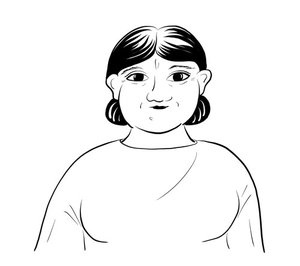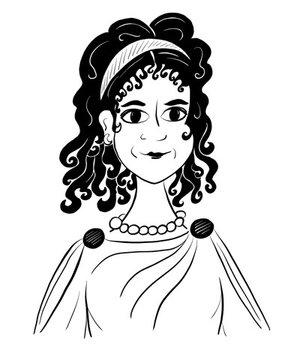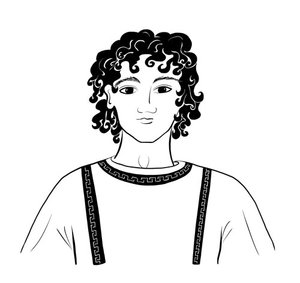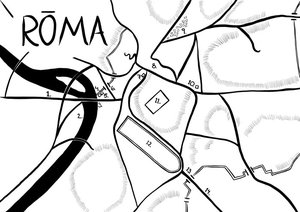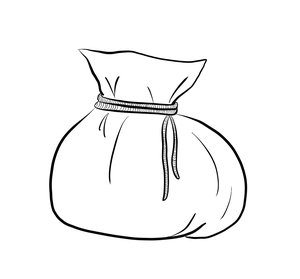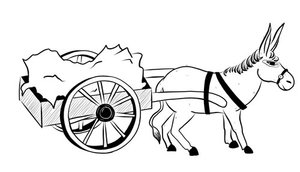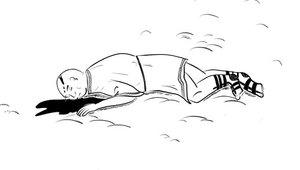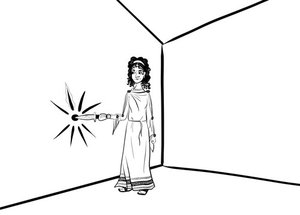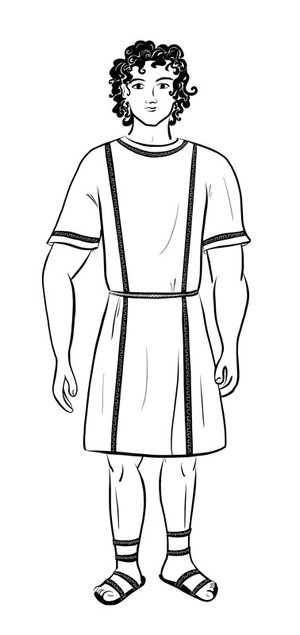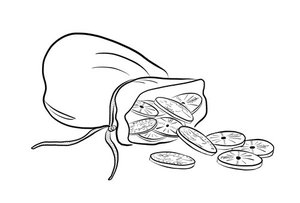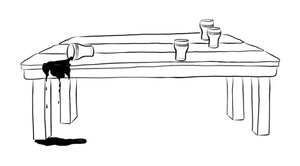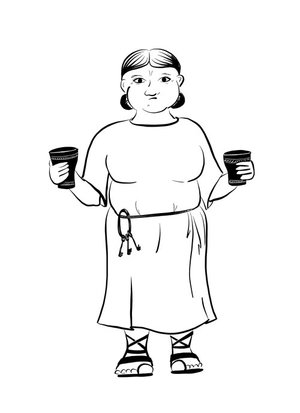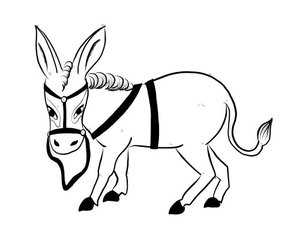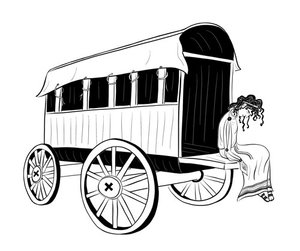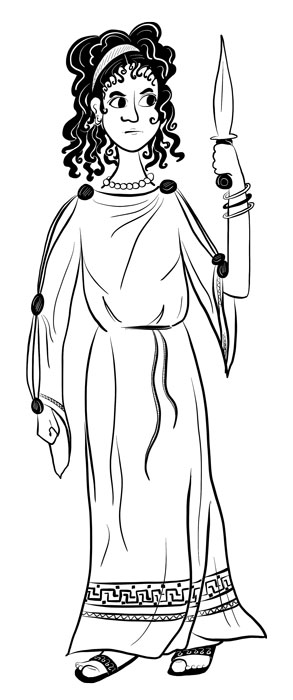Pugio Bruti Resources
Free resources for the book Pugio Bruti – A Crime Story in Easy Latin.Expressions | Illustrations | Easter eggs | Glossary
For even more resources (Latin video lessons, exercises, commentary) check out the Pugio Bruti Online Course.
More resources
Further down on this page you’ll find resources for the Latin book Pugio Bruti – A Crime Story in Easy Latin. It is a crime story with a limited vocabulary (350 words) set in ancient Rome. To accompany the book there is an audiobook and an extensive online video course.
- How to study guide
- Latin expressions from Pugio Bruti
- Illustrations
- Easter eggs
- Word form glossary
Discover the Pugio Bruti world
Book
Internalize the language: few words and high repetition.
Written in a classical style.
Read without a dictionary: Full Latin-English vocabulary.
Audiobook
Practice instant understanding.
Learn the restored classical pronunciation.
Listen to Latin anywhere and everywhere on the go.
Online course
Discover the book with video lessons in Latin.
Practice your understanding with quizzes.
Master the book with dialogues.
How to study Pugio Bruti
Do you want some suggestions on how to study Pugio Bruti — A Crime Story in Easy Latin?
Click below to get a step-by-step approach to using Pugio Bruti while learning Latin.
USEFUL LATIN EXPRESSIONS FROM PUGIO BRUTI
Below you will find a list of useful Latin expressions and words used in Pugio Bruti – A Crime Story in Easy Latin. Every expression is translated into English. Remember however when using the expressions in Latin to always consider the context.
If you have the Pugio Bruti course, remember to consult the commentary on each chapter, There is much detailed information expressions and constructions there.
Latin expressions
A
Abeat in malam rem! To hell with him!
Accede huc. Come here.
Ain’ tu? Really?
B
Bene narras. I’m glad to hear that! Good news!
C
Conversus abiit. He turned around and walked away.
D
Di boni! Good Lord(s)!
Domi. At home
Dormitum iit. He/she went to bed.
E
Ei in mentem venit… It occurred to him that…
Ei non est tempus. He doesn’t have time.
Eodem tempore quoAt the same time as…
Est quod tibi narrem. I have something to tell you.
Expectavit dum Terentia abiret. He/She waited for Terentia to go away.
F
Foras egressus est. He stepped outside.
Foris expectavit. He waited outside.
Foris. Outside.
H
Heus tu! Hey you!
Humi iacet. He/she is lying on the ground.
I
Ianua foras ferebat. The door led outside.
Illo ipso die. On that very day.
Illud solum vidi…the only thing I saw was…
In mentem venit pugionis. The dagger came to mind.
L
Lineae ex macula currunt. The lines run/extend out from the stain.
M
Male narras! I’m sorry to hear that. That is bad news!
Mediā viā. In the middle of the street.
Mitte pugionem. Let go of the dagger.
Multi aderant homines. There was a lot of people there.
Multo post. Much later.
N
Nemo est qui id nesciat. There is none who doesn’t know that. (Everyone knows that.)
Nesciebant quid facerent. They didn’t know what to do.
Nihil mihi est quod tibi dem. I have nothing to give you.
Non longe a caupona aberat. He wasn’t far from the tavern.
Numquid vis? Anything else?
Nunc ipsum. Right now.
O
Opus est mihi plaustro. I need the cart.
P
Parvis erat manibus. He had small hands.
Paulo ante. A little earlier.
Per hunc pugionem iuro. I swear by this dagger.
Per oculos iuro. I swear by (my) eyes.
Post longum tempus: after a long time
Proximus adolescenti sedet. He is sitting next to the young man.
Q
Qua est facie? What does he look like?
Qui sciam? How am I supposed to know?
Qui scis? How do you know?
Quid ad te? What’s it to you?
Quid hoc rei est? What is this? (What’s going on?)
Quid malum non respondes? Why the hell aren’t you answering?
Quid narras? What are you talking about?
Quid nunc faciam? What am I supposed to do now?
Quid, malum, narras? What the hell are you saying?!
Quod sciam. As far as I know.
R
Rogas?! How can you ask that?!
S
Secum cogitat. He/she is thinking to himself/herself.
Sed quid tum? so what?
Speciem mendici prebere solebat. He usually looked like a beggar.
T
Tantum est. That’s all.
Tantum scio. That’s all I know.
Tempus est me abire. It is time for me to leave.
Tibi dico. I’m talking to you.
Tunicam exuit. He/she took off the tunic.
Tunicam induit. He puts on the tunic.
U
Ut iam tibi dixi. As I’ve already told you.
V
Venter maxime dolet. His stomach hurt a lot.
Vide quid agas! Be careful! Think about what you are doing.
Vinum poscit. He orders wine.
Visne quod bibas? Would you like something to drink?

PUGIO BRUTI ILLUSTRATIONS
Below you’ll find all the illustrations from Pugio Bruti, drawn by Amelie Rosengren. Many teachers have asked for them to use in class do discuss or describe. Feel free to use them but do not post them elsewhere.
PUGIO BRUTI EASTER EGGS
Have you read Pugio Bruti carefully? Did you find all these easter eggs?
Throughout the book there are more or less subtle references to works from Roman antiquity. These come in the form of variations of famous quotes, and even entire sentences from a range of authors, e.g. Ennius and Ovid.
Below you will find a list of them. If you haven’t found them yet, you could re-read each chapter while looking for them and then check back here.
PROLOGUS
“Tempus est me, Terentia, abire.” (p. xiii)
Terence lying on his death bed utters these words to his daughter Terentia. It is a subtle reference to Socrates’ last words as given by Cicero in his Tusculanae Disputationes: “tempus est,” inquit “iam hinc abire me, ut moriar, vos, ut vitam agatis.” (“the time has now come,” he says, “to go away, I to die, you to go live your lives”.) Cic. Tusc. Disp. 1.99.
“Omnia nostra—aurum, equos, alia multa—unus homo nobis abstulit.” (p. xiv)
This is a reference to the line from from Ennius Annales, about Fabius Maximus Cunctator. The original line is quoted by Cicero in his De Senectute (“On Old Age”):
Unus homo nobis cunctando restituit rem.
“One man, by delaying, restored the state to us.”
(Cic. Off. 1.84)
CAPITULUM QUINTUM
“Hic est Lucius, asinus meus optimus, immo, aureus.” (p. xxv)
Terentia having woken up in a stable is confronted by a donkey, whose name she learns is Lucius. This is a very unsubtle reference to Apuleius’ work Metamorphoseon libri, also called Asinus aureus, which tells the tale of Lucius who by magic was turned into a donkey.
CAPITULUM QUINTUM DECIMUM
“Nihil est,” respondit Clodius, “mecum tacitus loquebar.” “Cave,” inquit Oenus, “cum homine malo loqueris.” (p. xlviii)
These words are uttered by Oeneus, the inn-keeper, when Clodius says he is just talking to himself. The exchange is taken from a letter by Seneca in which he quotes Crates’ words:
Crates, cum vidisset adulescentulum secreto ambulantem, interrogavit quid illic solus faceret. “Mecum” inquit “loquor.” Cui Crates “cave,” inquit, “rogo et diligenter attende: cum homine malo loqueris”.
“When Crates noticed a young man walking by himself, he asked him what he was doing all alone. “I am communing with myself,” replied the young man. “Be careful, then,” said Crates, “and take good heed; you are talking with a bad man!”
(Sen. Ep. 1)
CAPITULUM ALTERUM ET VICESIMUM
Tum tunicam auro imposuit ne quis malus reperire posset aurum. (p. lxviii)
Brutus’ son having acquired a cart, places the gold in it. To prevent anyone from seeing it, he covers it with his tunic. This line refers to a line from Catullus, but for the poet it is kisses not gold that is to be hidden:
conturbabimus illa, ne sciamus,
aut nequis malus invidere possit,
cum tantum sciat esse basiorum.
“We will mix them [the kisses], so that we know [how many there are], nor any malicious person be envious of them, when he knows that our kisses are so many.”
(Cat. 5)
CAPITULUM SEXTUM ET VICESIMUM
“Aurum et error.” (p. lxxvii)
As Clodius and Ursula are leaving for Gaul, Ursula asks what the reason for the sudden flight is. Clodius responding says only these words. In the story they refer to the stolen gold and a mistake Clodius thinks that he has committed. The words are a reference to the famous lines from Ovid’s Tristia:
perdiderint cum me duo crimina, carmen et error,
alterius facti culpa silenda mihi:
“Though two crimes, a poem and a blunder have brought me ruin, of my fault in the one I must keep silent.”
(Ov. Trist. 2.1)
CAPITULUM SEPTIMUM ET VICESIMUM
Sic eat quicumque homo mihi aurum auferet! (p. lxxviii)
Terentia, having stabbed Clodius, utters these words. They are inspired by a famous line from Livy. The victorious Horatius returning from battle kills his sister because she was mourning the death of her husband, killed in battle by Horatius. Having killed her he exclaims:
Sic eat quaecumque Romana lugebit hostem!
“So perish every Roman woman who mourns a foe!”
(Liv. 1.26)
Latin–English word form glossary
Below you will find a full Latin-Enlish glossary of every word form in the book.
This wordlist gives the English equivalent of each Latin word form in Pugio Bruti — A Crime Story in Easy Latin. For example, if you look up videret it will give the translation appropriate to the particular occurrences of the form in the text. So, under videret, you may find, “to see”, from e.g. hoc fecit ut videret, “she did this to see“and “could see”, from e.g. cum nihil videret “since she could not see anything.”
You could use this glossary as a word-for-word translation of Pugio Bruti, but it is really meant as a supplemental aid to be used only when needed.
Word form glossary of Pugio Bruti — A Crime Story in Easy Latin
A
ā from, by
ab from, by
abeat in malam rem may he/she go to hell! (lit May he/she go to the bad thing)
aberat he/she/it was far away from
abeundum have/has to go
abeuntem (while) going away
abeuntī as he/she was going away
abī go away!
abībant they were going/walking away/leaving
abībat he/she was going/walking away/leaving
abībō I’ll go/leave
abierat he/she had gone away/left
abiērunt They went away/left
abiisset he/she had gone away/left
abiistī you went away/left
abiit he/she went away/left
abīn’ in malam rem? will you just go to hell?!
abīre to go away
abīret to go away
ablātō stolen/taken
ablātus est has been/was stolen/taken
abstergēre to wipe off
absterserat had wiped
abstersit wiped
abstulerat had taken/stolen
abstulerit has taken/stolen
abstulī I stole/ I have stolen
abstulisse had stolen
abstulistī you stole/ you have stolen
abstulit he/she stole/has stolen
abtersō having been wiped
accēde hūc! come here!
accēdentis (of someone) approaching
accessit approached/walked up to
ad to, toward, at
aderant were there/were present
adest is here
adiuvā help
adiuvābant were helping/were of help
adiuvābisne will you help?
adiuvāre help
adiuvat he/she/it helps
adiuvetne helps
adiūvī I helped
adiūvisset had helped
adiūvistī you helped
adnuēbat he/she nodded/was nodding
adnuit nodded
adulēscēns young man
adulēscente young man
adulēscentem young man
adulēscentēs young men
adulēscentī to/for the young man
adulēscentis of the young man/young man’s
aedēs house, building
aedibus house, building
aedium of the house/building; house’s
Aëtiī Aetius’
affer bring!
affer bring (me)
afferās bring
agās you are doing; vide quid agas! Think about what you are doing (threat)
age! come on!
agēbās were doing
agō see’grātiās tibi agō’
ain’? really? is that so?
aiō I do say
ais are you saying
Alexandrīam Alexandria, city in Egypt
alia another; other things
aliae other
aliam another; aliam post aliam,one after the other
aliī some, other
aliīs other
aliō another
aliquem someone
aliquid something
aliquis someone
aliud another; nihil aliud,nothing else
alium another
alter the other; alter alterum,each other
alterā another, the other
alterum another; seealter
amplius further, more
an or
ancilla female servant, slave girl
ancillā female servant, slave girl
ancillam female servant, slave girl
ancillās female servants, slave girls
ancillīs female servants, slave girls
ante before, in front of
ante earlier, previously, before
antequam before
ānulīs rings
ānulōs rings
aperīrī open
apertā having been opened; open
aperta est was opened
apertō having been opened; open
apertōs open
apertus est was opened
aperuerat had opened
aperuit opened
argenteī of silver
argenteum of silver
argenteus (made) of silver
asina Asina, name of Oeneus’ tavern
asinā Asina, name of Oeneus’ tavern
asinam Asina, name of Oeneus’ tavern
asinō donkey
asinōrum of donkeys
asinōs donkeys
asinum donkey
asinus donkey
at but; (in dialogue) then, and
Athēnās to Athens
attulī I brought
attulit You brought
audī! listen!
audiēbat was listening/listened
audīn’?! Do you hear?!
audiō I hear (you)
audītā having been heard
audīvī I heard
audīvit he/she/ it heard
auferet he/she/it steal
auferret to steal
Augustī Augustus’
Augustō from Augustus
Augustum Augustus
Augustus Augustus
aurea golden
aureae golden
aureīs golden
aureōs golden
aureus golden
aurī of gold
aurō gold
aurum gold
aut or
autem but, however, on the other hand, etc
B
barbā beard
barbae beards
barbam beard
bene well
bibās to drink
bibēbam was drinking
bibēbat was drinking
bibere to drink
biberet to drink
bibisset had drunk
bibit drank
Bombius Bombius
bona good
bonī good
bonōs good
bonus good
brevem short
brevī short
brevis short
Brūtī Brutus’
Brūtus Brutus
C
cadentem falling
Caesar Caesar
Caesarem Caesar
calor heat, warmth
calōrem heat, warmth
candidam (shining) white
capillō hair
capillōs hair
capillus hair
capite head
capitī on the head
capitis of the head
caput head
caupō innkeeper
caupōna inn, bar
caupōnā inn, bar
caupōnae of the inn, bar/inns, bars
caupōnam inn, bar
caupōnem inn, bar
caupōnīs inns, bars
cavē beware, look out
cecidit fell
cēlābat was hiding
cēlāret was hiding
cēlat is hiding
cēlāvit hid
celeriter quickly, fast
celerius faster
celerrimē very fast
Circī Maximī Of Circus Maximus
Circum Maximum Circus Maximus
circumspexit looked around
circumspiceret to look around
circumspiciēbant were looking around
clāmābat was screaming
clāmāns screaming
clāmantem screaming
clāmantī to x screaming
clāmās you are screaming
clāmātum est there was yelling, ie people yelled
clāmāvit screamed
clausā having been closed
clauserat had closed
clausit closed
Clōdī Clodius
Clōdiī Clodius’
Clōdiō to Clodius
Clōdium Clodius
Clōdius Clodius
cōgitā think
cōgitābat was thinking
cōgitāns thinking
cōgitante thinking
cōgitāvit thought
cōnātus es you tried
cōnātus est he tried
conclāve room
conclāvī room
conclāvis of the room
cōnor I try
cōnsēdit sat down
cōnsīde sit down!
cōnsīderet to sit down
cōnsistentem sitting down
cōnspectā having been seen
cōnspectō having been seen
cōnspexit caught sight of
cōnspicerentur could be seen
cōnspicerētur to be seen
cōnspiciēbantur were visible, could be seen
cōnstiterat had stopped
cōnstitit stopped
conversa having turned around
conversō having been turned
conversus having turned around
convertērunt turned (around)
convertit turned (around)
cruenta bloody, covered in blood
cruentā bloody, covered in blood
cruentam bloody, covered in blood
cruentō bloody, covered in blood
cruentōs bloody, covered in blood
cruentum bloody, covered in blood
cruentus bloody, covered in blood
cucurrerat had run
cucurrī I ran
cucurristī you ran
cucurrit ran
cui for whom
cuius whose
cum with, together with
cūr why?
curre run!
currēbant were running
currēbat was running
currentem running
currere to run
cūstōdēs guards
cūstōdibus guards
cūstōs guard
D
dā! give!
dabō I will give
dare give
daret to give
dē down from
dēbēbat should
dēbēre should
dēbēs you should
dēbet should
dēbuit should
dederis give
dedit gave
dem I can give you
dēscendendum est have to get off
dēscendit got off
deum god
dī gods
dīc speak!
dīcam I will say
dīcēbat was saying
dīcent (they) will say
dīcere to say, speak, refer to
dīceret could say
dīcis you say
dīcitur is said to
dīcō I say, I speak, I refer to
diē day; alio dieanother day
diēs day; days
diū long, for a long time
diūtius longer, for a longer time
dīves rich
dīvitem rich
dīvitēs rich
dīxerat had said
dīxī I said, I told (you)
dīxistī You said
dīxit (he/she) said
dolēbat (he/she/it) was hurting
doleō I am sad, I am sorry (for)
dolēret (he/she/it) was hurting
domī at home
domō from the house
domum home, house
domūs of the house
dōna gifts
dōnum gift
Dōrippa Dorippa
dormiēbat was sleeping
dormiendum est have to sleep
dormiente sleeping
dormīre (to) sleep
dormītum to sleep
dormīverat had slept
dormīvistī you (have) slept
duās two
dūceret (would) lead
dūcet will lead
ductūrum esse will lead
dum while, as long as, until
duo two
duōbus two; by two
duōs two
dūxerant had led
dūxit led
E
ē from, out of, out from
ea those (things), that,
eā her, of, with that
eādem the same
eam her, it
eat may he go
ecce look!
effūdī I poured out
effūdistī you poured out
effūdit poured out
effūdit (he/she) poured out
effundī being poured out
effundis you are pouring out
effūsō having been poured out
effūsum having been poured out
ego I
ēgrediendum est have to leave
ēgressa having stepped out, left
ēgressa es you went out, stepped out
egressa est she went out
ēgressam having stepped out
ēgressī sumus we left
ēgressus having stepped out
ēgressus est he stepped out
eī him, her
eius his, hers, its
enim for
eō to that place, there
eō him, it, that
eōdem the same
eōs them
equī horses
equīs horses
equōrum of the horses
equōs horses
equum horse
erant were
erat were
errat is wrong
errāvī I was wrong
errāvimus We were wrong
errō I am wrong
error mistake, error
es you are
esse to be
essent were
esset were
essetne whetherwere
est he/she/it is
estne is it?
et and, also
et…et both…and
etiam even, also; still
eum him, it
eumque and…it
eundem the same
eundum est have to go
eunt go
euntem going
euntēs going
ex from, out of, out from
excitāre to rouse, to wake
excitāta erat she had been awoken
excitāta est she was awoken
excitātus est he was awoken
exclāmāvit shouted
exspectābant were waiting
exspectandum sit have to wait
exspectant are waiting
exspectāre to expect, wait, wait for
exspectāret to wait
exspectāvit waited
exuit took off
F
facerent to do
faceret to do
faciam I will (do); shall do
faciē appearance; qua facie est? What does he/she/it look like?
faciem face, appearance
faciendum esse had to be done
factō having been made
fēcī I did, acted
fēcimus (we) did
fēcisse had done
fēcistī you did; you have done
fēcit (he/she/it) made, did
fēmina woman
fēminae woman’s; from the woman
fēminam woman
ferēbat lead
fīlia daughter
fīliā daughter
fīliam daughter
fīliī of the son
fīliō for, to the son
fīlium son
fīlius son
flāva yellow
flāvā yellow
flāvae yellow
flāvam yellow
flāvās yellow
flāvī yellow
flāvō yellow
flāvum yellow
fluēbat flowed
fluēbat was flowing; ei sanguis e ventre capite fluit, he/she is bleeding from the head (lit For him/herblood is flowing from the head)
fluit flows
forās outside, out
forīs outside
forō market-place, square
fortasse perhaps, maybe
forum market-place, square
frīgus cold
fuerat had been
fūgerat had run away, fled
fugiēbat was running away
fugientem running away
fugimus we are running away
fūgit (he/she) ran away
fuimus we were
fuisse have been; had been
fuistīne you were?
fuit (he/she/it) was
G
Galliā Gaul (roughly moderns France)
Galliam Gaul (roughly moderns France)
geram I will wear
gerēbat (he/she/it) was wearing
gerere to wear
geris you are wearing
gerit (he/she) is wearing
geritne does he/she/it wear?
gradū step; gradum fēcit, took a step
Graecum Greek, Grecian
Graecus Greek, Grecian
grātiamhabeō I am grateful
grātiās tibi agō thank you
H
habēbant (they) had
habēbat (he/she/it) had
habēbit (he/she/it) will have
habēmus we have
habent they have
habeō I have
habēre to have
habēs you have
habet he/she/it has
habuerant (they) had had
habuisse had
hāc this
hae these
haec this (woman); these things
hanc this
hās these
hercle by Hercules!
heus hey!
hic this
hīc here; at this moment
hīs (with) these
hoc this,
hōc this
homine man, person
hominem man, person
hominēs people
hominibus people
hominis of the person, man
hominum of people
homō man, person
hōs these
hūc here, to this place
humī on the ground
hunc this
huncine this one?
I
ī! go!
iacēbat (he/she/it) was lying
iacēns lying
iacentem lying
iacēre to lie
iacet (he/she/it) is lying
iam already
iānua door
iānuā by the door
iānuae to the door; doors
iānuam door
iānuīs doors
ībant (they) were going
ībat (he/she/it) was going
ibi there
ībimus we will go
ībit (he/she/it) will go
id that
idem the same (thing)
īdem the same
ierat (he/she/it) had gone
iērunt (they) went
iīs them
iīsdem the same
iisse (to think that she) went
iit (he/she/it) went
illa she
illae they, those
illam her; that
ille he; that
illī for him, his; from her
illīs those; illis temporibusin those days
illīus of that
illō that
illud that
illum him, that
immō in fact, no rather
impōneret to puton
impositā having been placed
impositīs having been placed
imposuit (he/she) put
imprūdēns thoughtless, through carelessness
imprūdēns (aliquid facere) to do something by mistake
īmus (we) are going
in in at, on
in into, to, against
induis you put on
induit (he/she) put on
indūtum dressed in
indūtus dressed in
ingredientem entering
ingressa est (she) entered
ingressī sunt (they) entered
ingressus est (he) entered
inquam I say
inquit he/she says/said
īnspexit (he/she) looked into
intellegēbat (he/she) understood
intellegere understand
intellegit (he/she) understands
intellegō I understand
intellēxī I have understood
intellēxit (he/she) realized, understood
interfēcerit (he/she) killed
interfēcī I have killed
interfēcisse to have killed
intrāvērunt (they) entered
intrāvit (he/she) entered
intuēbātur (he/she) was looking at…
intuēns looking at…
intuentēs looking at…
intuentī for someone looking at…
intuēre look at
intuērī look at
intuēris you look at
intuita esset she had look at
intuita est she look at
intuitī sunt (they) looked at
intuitus est (he) looked at
Iovem Jupiter
ipsa myself, itself
ipse (he) himself
ipsī from himself
ipsō very, exact
ipsum this exact one; nunc ipsum right now
īrāta angry
īrātior angrier
īrātīs with angry
īrātissimam very angry
īrātissimus very angry
īrātus angry
īre (to) go
īrent to go
īret was going
is he
ita so, in that way; just so, yes
itaque so, thus
Iūlium Julius
Iuppiter Jupiter, God of the sky
iūrō I swear
iuxtā next to
L
lapide with a stone
lapidem stone
lapidēs stones
lapis (with) stone
Latīnē in Latin, Latin
lectō bed
licetne? may I?
licuit was allowed
līneae lines
līneās lines
līneīs lines
locō place
locum place, spot
locūta est (she) spoke
locūtus erat (he) had spoken
locūtus est (he) spoke
Londīniī in London
Londīnium to London
longā long
longē far; far away
longissimam longest, really long
longius longer; further
longum long
longus long
loquēbar I was speaking
loquēbātur (he/she) was speaking
loquentem speaking
loquentēs speaking
loqueris you are speaking
loquī speak
loquitur (he/she) speaks
lūcēbant (they) were shining
lūcēbat was shining
lūcent are shining
lūcente shining
Lūcium Lucius, name of the ass
Lūcius Lucius, name of the ass
lūmen light
Lutetia Paris
Lutetiae in Paris
Lutetiam (to) Paris
M
macula spot, stain
maculā spot, stain
maculae spots, stains
maculam spot, stain
maculās spots, stains
maculīs with spots, stains
magna large
magnā large
magnī large
magnīs (with) large
magnō large
magnum large, great
magnus large, great
maius greater, larger
malam see abin’
male badly; wrong
malō bad
malum bad; quid, malum… what the hell…
malumne (is) it bad?
malus bad
manē stay! wait!
manēre to stay, to wait, to remain
manibus with (his/her) hands
mānsit (he/she) stayed
manū (with) the hand
manum hand
manūs hands
Mārs Mars, God of War
Martem Mars, God of War
maximam great
maximē greatly
maximō large, big
mē me
mea my
meā my
meae my
mēcum with me
media middle of, middle
mediā middle of, middle
mediam middle of, middle
mediō middle of, middle
medium middle of, middle
melius better
meminerō I will remember
meminī I remember
meministīne do you remember?
mendīcī beggars, of the beggar
mendīcō beggar
mendīcum beggar
mendīcus beggar
mēnsa table
mēnsā table
mēnsam table
mentem mind; alicuiin mentem venit it occurred to someone
mentīris you are lying
mentītam esse having lied
mentītur (he/she) is lying
meō my
meum my
meus my, mine
mī my
mihi (for) me
minister server
ministrō (to the) server
ministrum server
mīsērunt (they) let go
mīsī I sent
mīsistī you sent
mīsit sent
missō having let go of
mitte! let go of!
mittere let go of
mitterent send
modo only, just, just now
modō way
moriar I will die
mortua es / est you are/she is dead; she died
mortuam dead
mortuō dead
mortuum esse dead
mortuus dead
mōverat had moved
mōvērunt moved
mōvit moved
mox soon
multa many (things)
multās many
multī many
multō by much, much
multōs many
multum much
multumne much…?
N
nārrā! tell me!
nārrandī to tell
nārrantī telling
nārrāre to tell
nārrās you are talking about; bene narras, good news!
nārrāverat had said
nārrāvit toldabout
nārrem to tell you; est quod tibi narrem, I have something to tell you
nē so that…not
nēminem no one
nēmō nobody, no one
neque nor, and…not; neque…neque,neither…nor
nesciat does not know
nesciēbant did not know
nesciēbat did not know
nesciō I don’t know
nescīre to not know
nescīs you don’t know
nescit he/she don’t know
nigram black
nigrō black capillo nigro with black hair
nihil nothing, not…anything
nimis too
nōbīs for us; from us
nōbīscum with us
nocte at night
noctēs nights
noctibus nights
noctū at night, by night
nōlēbat (he/she) did not want to
nōlō I don’t want, I refuse
nōluī I did non want to
nōmen name
nōmine by the name of
nōn not
nōnne…? do you not…? Isn’t? etc
nōstīn’? do you know?
nostra our things
nōverat (he/she) knew
novī new
nōvī I know
nōvit (he/she) knows
novō new
nox night
nūlla no, no one
nūllam no, no one
nūllī no; from no…
nūllō modō in no way, not at all
num whether
nummīs coins
nummō coin
nummōs coins
nummum coin
numquam never
numquid vis, have you anything further to say? was there anything else? do you want me further?
nunc now
nunciam right now, now
nusquam nowhere
O
ō O, oh!
obscūra dark
obscūrā dark
obscūrae dark
obscūram dark
obscūrās dark
obscūrīs dark
obscūrō dark
obscūrum dark
oculī eyes
oculīs eyes
oculōs eyes
oculum eyes
Oeneum Oeneus, name of the inn-keeper
Oeneus Oeneus, name of the inn-keeper
offendit (he) ran into
ōlim once, at one time
omne all (of which)
omnem the whole
omnēs all
omnia everything, all
optimē excellently, extremely well
optimum excellent, best
optimus excellent, best
opus est there is need
P
pallida pale
pallidus pale
pariēs wall
pariete wall
parietem wall
parietēs walls
parietī wall
parietibus walls
parietis of the wall
parva small, little
parvā small, little
parvae small, little
parvam small, little
parvās small, little
Parve Parvus (name)
parvīs small, little
parvō small, little
parvum small, little
parvus small, little
pater father
patre father
patrem father
patrī to the father
patris father’s, of father
paulisper for a little time, for a little while
paulō a little
per through, over, (in swearing)by
percusserat (he/she) had struck, stabbed
percussisset (he/she) had struck
percussit (he/she) struck, stabbed
percussus erat (he) had been struck, stabbed
percutere to strike, to stab
pergite! continue!
perīculōsa dangerous
perīculōsae dangerous
perīculōsam dangerous
perīculōsissima very dangerous
perīculōsum dangerous
perrēxit (he/she) continued
placēbant were pleasing; barbae placebant, she liked beards
placēbat was pleasing; Porta Capena ei non placebat, He did not like Porta Capena
placent are pleasing; tunicae non placent, I do not like yellow tunics
placet is pleasing
plānē clearly, absolutely
plaustrī cart’s, of cart
plaustrō cart
plaustrum cart
plēna full
plēnā full
plēnam full
plēnō full
plēnum full
plēnus full
pōcula cups
pōculō cup
pōculum cup
pontem bridge
Pontem Aemilium The Aemilia Bridge
poposcit (he/she) asked for
Porciae Porcia’s, of Porcia (Porcia was Brutus’ wife)
porta gate
portā gate
Porta Capēna Porta Capena
Portā Capēnā Porta Capena
Porta Flūmentāna Porta Flumentana
portam gate
Portam Capēnam Porta Capena
Portam Flūmentānam Porta Flumentana
portīs gates
poscēbat (he/she) was asking for
positō having been placed, put down
posse (to) be able to
posset (he/she) could
possim can; nihil est quod reperire non possim, there is nothing that I cannot find
possum I can, I’m able, I may
post later, afterward; post,prep with acc,behind, after
posteā afterwards, thereafter
posuerat (he/she) had placed, put
posuistī you placed, put
posuit (he/she) placed, put down
poterat (he/she) could
poterimus we will be able to
poterō I will be able to
potesne can you?
potuī I could, I was able to
prae in front of
praebēbant held forth; speciem alicuius rei praebere, look like something
praebent speciem praebent, they look like (lit Hold forth the appearance of something)
praebēre speciem praebere, look like
praebētur species Circi Maximi praebetur, it looks like Circus Maximus (lit The appearance of Circus Maximus is held forth)
praetereuntem passing by
praeterībat was passing by
praeteriērunt passed by
praeteriit passed by
prehendent (they) will seize, arrest
prehenderet seize
prehendērunt (they) seized
prehendī I seized; being seized
prehendistīne did you seize, grab hold of?
prehendit (he/she) grabbed
profectō surely, certainly, indeed
prōme! take out!
prōmpsit (he/she) took out
prōmptōs having been taken out
prōmptum having been taken out
prope near, almost
proximā last; proxima nocte, last night
proximam closest, nearby
proximī of the closest, next to
proximīs the last few, couple of
proximō close, nearby
proximum closest, next to
proximus closest, next to
puer boy
puerō to the boy
puerum boy
pūgiō dagger
pūgiōne dagger, with the dagger
pūgiōnem dagger
pūgiōnēs daggers
pūgiōnis of the dagger
pugnāre to fight
pugnātis (you) are fighting
pugnāverat (he/she) had fought
pugnāvit (he/she) fought
pugnō with the fist
pulcher beautiful, handsome
pulcherrimus very beautiful, very handsome
pulchrōs beautiful, handsome
pulchrum beautiful, handsome
pūrā clean
pūrae clean
pūram clean
pūrior cleaner
pūriōrēs cleaner
pūrō clean
putābam I thought
putābant (they) thought
putābat (he/she) thought
putābunt (they) will think
putās you think
putāvī I thought
putō I think
Q
quā which; with which
quae which
quaeram I will look for, search for
quaerendum erat had to search for
quaerere to search for, to look for
quaereret should look for
quaeris you are looking, searching for
quaerit (he/she) is looking, searching for
quaerō I search for, I look for
quaerunt (they) are looking, searching for
quaesīvit (he/she) searched, looked for
quāle? what sort, what (is) it like?
quālēs the kind that
quālis what sort, what (is) it like?
quam which, than, how
quamquam although
quās which
quasi as if
quem whom, which
quī who, which, what
quī how?
quibus by which
quīcumque whoever, whatsoever, whatever
quid what
quis who
quō where, where to?
quō (by, in) which
quōcum with whom
quod that, because, since
quōmodo how
quoque also, too
R
raeda carriage, coach
raedā carriage, coach
raedam carriage, coach
raedārum of carriages, of coaches
raedās carriages, coaches
rē thing, affair, matter
rēctē rightly, correct
recuperābō I will recover, get back
recuperāre to recover, to get back
recuperāret (was supposed) to recover
recuperāvī I have recovered
recuperem Should I recover
recuperent to recover, to get back
redī! come back!
rediī I returned
rediisset (he/she) had returned
rediit (he/she) returned
redīre to go back, to return
redīte! come back!
reī of thing, of affair, of fact, of matter, of circumstance
relictā having been left behind
relictum having been left behind
relinquō I leave
relīquī I left
relīquimus we left
relīquit (he/she) left
rem thing, affair, fact, matter, circumstance
reperiendā finding
reperiendō finding
reperient (they) will never find
reperīre to find
reperīret to find
reppererō find (will have found)
repperī I have found
repperisse have found
repperistī you have found
repperistīne have you found?
rēs thing, affair, fact, matter, circumstance
respondē! answer!
responderit responded
respondēs you respond
respondit (he/she) responded
respōnsum answer, response
restābant were left, remaining
restābat was left, remaining
restat is left, remaining
rogā! ask!
rogābō I will ask
rogāre to ask, to ask for
rogās you ask
rogāverat (he/she) had asked
rogāvī I asked
rogāvit (she) asked
rogō I ask
Rōma Rome
Rōmā Rome
Rōmae In Rome
Rōmam Rome
Rōmānō Roman
Rōmānum Roman
ruber red
rubra red
rubrā red
rubram red
rubrās red
rubrī red
rubrīs red
rubrō red
rubrum red
rūrsus again
S
sacculō small sack
sacculum small sack
saepe often
salvē! hello!
sanguine from blood
sanguinem blood
sanguinis (of) blood; multum sanguinis, much blood
sanguis blood
scelesta crooked, criminal
scelestae of crooked, criminal
scelestam crooked, criminal
sceleste crooked, criminal
scelestī crooked, criminal (people)
scelestīs to criminals
scelestissima very crooked, criminal
scelestō crooked, criminal
scelestōs crooked, criminal
scelestum crooked, criminal
scelestus crooked, criminal
sciam I know; qui sciam, How should I know, be sure?
sciēbam I knew
sciēbat (he/she) knew
sciō I know
scīre to know
scīs you know
scīsne? do you know?
scit he/she knows
sē himself, herself
sēcum with himself, herself; secum cogitavit, he/she though to him/herself
secūta erat she had followed
secūta sum/es/est I followed, you followed, she followed
secūtus est he followed
sed but
sedēbant (they) were sitting
sedēbat (he/she) was sitting
sedēns sitting
sedentem sitting
sedentī sitting
sēderat (he/she) had sat
sedēre to sit
sedēret (he/she) was sitting; to sit
sedet he/she is sitting
sēdit (he/she) sat
sellā chair
sellam chair
sellīs chairs
semper always, all the time
sene old man
senem old man
senex old man
senī to the old man
sequēbātur (he/she) was following
sequere! follow!
sequerētur to follow
sequeris you are following
sequerisne? are you following?
sequī (to) follow
sī if, though
sibi for him, herself; his, hers
sīc in this way, so
significant (they) mean
significārent (what) they meant
significat (he/she/it) means
sim I am
similem similar, like
similēs similar, like
similis similar, like
sine without
sint are
sīs you are
sit (he/she/it) is
sitne? is (he/she/it)?
sōl the sun
sōla alone
sōlam only
sōlās only
sōle the sun
solēbat used to, be accustomed to
sōlem the sun
soleō I usually…, am accustomed to
solēre to be accustomed, to do something often
solēsne do you usually…?
solet (he/she) usually…, is accustomed to
soletne does (he/she) usually…, is (he/she/it) accustomed to?
sōlī alone, only
sōlī (to) the sun
sōlibus suns
sōlum only
sonitū by the sound, noise
sonitum sound, noise
speciem alicuius reī praebēre to give the impression of something, to look like something
speciēs appearance
stābat (he/she/it) was standing
stabulō stable
stabulum stable
stantēs standing
stāre to stand
stās you are standing
statim right away, immediately
stetērunt (they) stood
stetit (he/she/it) stood
suā her, his
suae her, his
suam her, his
suās her, his
subīrāta somewhat angry, irritated
subīrātus somewhat angry, irritated
subitō suddenly
subrīdēns smiling
subrīsit (he/she) smiled
Subūram an area of the city of Rome
suīs his, hers, its
sum I am
sūme! take!
sumne? am I?
sumpsit (he/she) took (up)
sūmptā having been taken
sūmptīs having been taken
sūmptō having been taken
sūmptum having been taken
sumus we are
sunt (they/there) are
suō (with) his
super on, (spread) over
surgere to rise, to get up
surrēxit (he/she) stood up
suspexit (he/she) looked up
suum his, hers, its
T
tacē! quiet!
tacēbant (they) were silent
tacēbat (he/she) was silent
tacēs you are silent
tacita silent
tacitam silent
tacitō silent
tacitum silent
tacitus silent
tacuērunt they were silent
tacuit (he/she) was silent
tam so
tamen however, still, yet
tandem finally, at last
tantīs such, great
tantum only; so much
tantus so great, such
tē you
tempore time; eodem tempore, at the same time
temporibus illis temporibus, in those days
tempus time
tenēbant (they) were holding
tenēbat (he/she) was holding
tenebrae darkness
tenebrās darkness
tenebrīs darkness
tenēns holding
tenēre to hold
tenet (he/she) is holding
Terentia Terentia
Terentiā Terentia
Terentiae Terentia’s, of Terentia; to Terentia
Terentiam Terentia
Terentiī Terentius’
Terentius Terentius
Tiberī The river Tiber in Rome
Tiberim The river Tiber in Rome
Tiberis The river Tiber in Rome
tibi for you, to you
trahēbat (he/she/it) was dragging, pulling
trahēbātur (he/she/it) was being dragged, pulled
trahere to drag, pull
trahī being dragged, pulled
trāns across, over
trāxērunt (they) dragged, pulled
trāxit (he/she/it) dragged, pulled
trēs three
tū you, yourself
tua your
tuā your
tuae your
tuam your
tum then, next, at that time; in dialogue, indicating a change of speaker
tūne? you?
tunica tunic
tunicā tunic
tunicae tunics
tunicam tunic
tunicās tunics
tuum your
tuus your
tuusne yours?
U
ubi where; as, conjwhen
umbra shadow
umbram shadow
umbrās shadows
ūna one
ūnā one
ūnam one
unde from where, from which place
ūnum one
ūnus one
urbe city
urbem city
urbis of the city, the city’s
urbs city
Ursula Ursula
Ursulae Ursula’s, of Ursula; to Ursula
ut (comparative) as; that, in order that; (result)that
V
vacua empty
vacuae empty
vacuam empty
vacuīs empty
vacuō empty
vacuum empty
valē goodbye!
valet (he/she) is well
vehementer violently, fiercely
velit wants
velle wants, to want
vellet wanted
vēnerat (he/she/it) had come
vēneris you come, will have come
vēnī I came
veniēbant would come
venientēs coming
venīre to come
vēnisset (he/she/it) had come
vēnistī you came
venit (he/she/it) comes
vēnit (he/she/it) came; in mentem mihi venit; I realized, it came into my mind
veniunt (they) come
venter stomach
ventre stomach
ventrem stomach
ventrī stomach
via street
viā street
viae of the street / streets
viam street
Viam Appiam Via Appia, a road in Rome-
Viam Aurēliam Via Aurelia, road in Rome
viārum of the streets
viās streets
vidē! look!
videat (he/she/it) sees
vidēbam I was seeing
vidēbantur (they) seemed
vidēbāris you seemed
vidēbat (he/she/it) saw
vidēbātur (he/she/it) seemed
vidēbō I will see
videntur (they) seem
videō I see
videor I seem
vīderāsne…? Had you seen…?
vīderat (he/she/it) had seen
vidēre (to) see
vidērem I saw
vidēret (he/she/it) saw; to see
vidērētur (he/she/it) seemed
vīderint (they) see, will have seen
vidētur (he/she/it) seems
vīdī I saw, have seen
vīdisse had seen
vīdistī you saw, have seen
vīdistīne have you seen?
vīdit (he/she) saw
viīs (on) streets
vīn’…? do you want…?
vīna types of wine
vīnī of wine
vīnō wine
vīnum wine
vir man
virī man’s, of man; men
virō man
virum man
vīs you want
vīsa est (she/it) seemed
vīsne do you want…?
vīvam I will live
vīvere live
vīvō I live
vix hardly, barely
vocantī calling
vocātō having been called
vocāvit (he/she/it) called
volēbat (he/she) wanted
volō I want
vult (he/she) wants
Frequently Asked Questions About Pugio Bruti
How do I get the book?
Can I get the book from Amazon?
Not at the moment.
Is there an audiobook version?
Yes! There is a professional studio recording of Pugio Bruti available as a digital download here.
Is Pugio Bruti Suitable For Autodidacts Wanting To Improve Their Latin?
Yes! It’s a perfect book for extensive reading: the full Latin–English vocabulary make Pugio Bruti very accessible for learning on your own. If you’re unsure about the level, be sure to read the first chapter above.
There is an online-course planned for the book as well, that will help you go through vocabulary, grammar, reading and listening comprehension, and history. The course will be available in early 2019.
How large is the vocabulary?
The vocabulary is approximately 350 unique words, with a high level of repetition.
Is the grammar sheltered?
The grammar is not sheltered. The full range of Latin grammar is used. However, sentences are not too long nor too difficult but kept to a level that makes grammar constructions common to Latin literature feel easy and familiar to the reader. This gives you the opportunity to practice and master your ablative absolutes, accusative with infinitives, etc., while feeling in control of the grammar, and enjoying the story.
How much Latin do I need to know to read Pugio Bruti?
That’s a tricky question. We recommend you read the first chapter above or listen to it if you’re interested in the audiobook. It does contain a full Latin-English vocabulary, so fret not, should you not understand a some words.
The book repeats words in different ways so that a word you might not understand to begin with, will become a natural part of our own vocabulary once you’ve finished the book.
If you are a complete novice to the Latin language, we recommend you read the first half of Familia Romana (the first volume of Lingua Latina per se illustrata) first and then dive into the exciting story that is Pugio Bruti.
Why should I get the online course?
In the course, you will practice your understanding of Latin and deepen your knowledge, utilize words and grammar from the book and put your listening and reading abilities to the test. You will also learn more about Rome itself and the context in which the book takes place, as well as get a taste of ”real” Latin from Antiquity.
The course also provides teaching materials so that if you’re a teacher you can take the course and then use all the materials provided in the course in your own class. No prep!
Can I use Pugio Bruti in the Classroom?
Yes. This book is perfect for classroom settings.
The Latin-English vocabulary provides you with all the vocabulary that you need. The chapters are kept short so that it can be easily divided into lessons. It is also illustrated to enable exercises and help students understand the text. Since the book doesn’t shelter grammar you can also use it to practice and illustrate constructions common to the Latin language.
The story is set in a historically authentic context, Augustan Rome, so that it can also be used for small history lessons and discussions about ancient Rome and Roman life. The text is sprinkled with references to famous phrases to enable even deeper discussions.
We made sure to give the characters in the book many layers so that they too can be used as discussion topics in class.
There is now an online video course for Pugio Bruti, with videolessons in Latin, exercises, and detailed commentary on the language of the text. See above. We created it to minimize preparation time for teaching. You can read more about it here and read this review by teacher Jessie Craft.
Can schools get a discount?
Yes. If you’re buying copies for a school and want to bulk order more than a 10 copies, contact us at [email protected].













